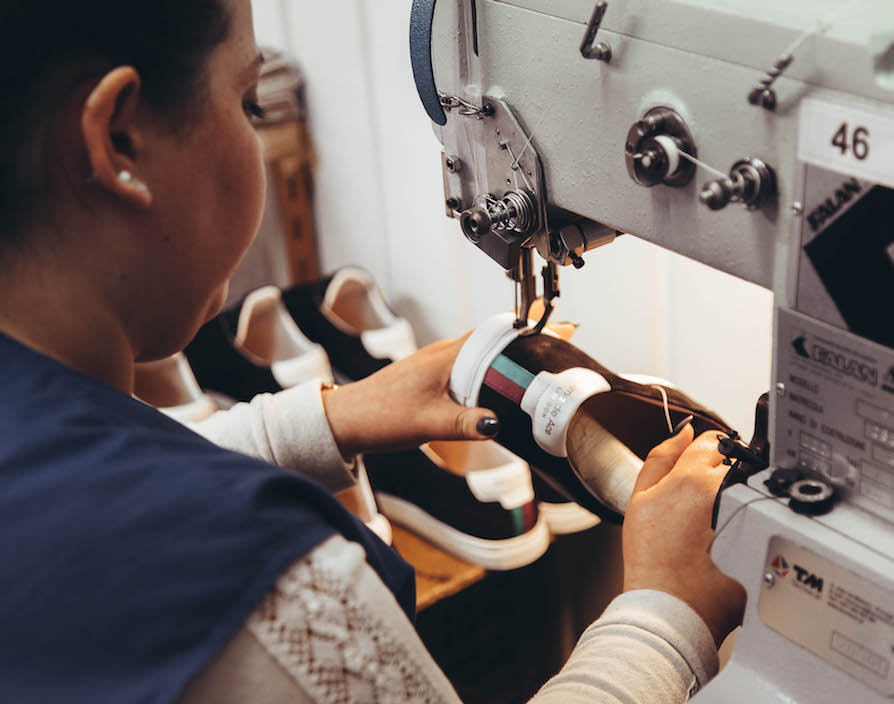“I always had the idea of starting something but never realised it would be so early and especially whilst at university,” Sebastian Agace, the founder of Alma de Ace, the London streetwear brand, tells Elite Business.
Indeed, it was during his time studying business management and marketing at the University of Leeds when he got the inspiration for his company, having made the most of his downtime. “In between lectures and with the long breaks between semesters, I began to develop ideas and knew that I wanted to put my mind to something,” he says. “It actually made sense in the end to start it at university, being young I had time on my hands, plus the perceived level of risk was lower back then.”
Given the low risk it entailed, Agace actually considered his project to be “a hobby” so there was little to no stress involved on that front, although it did require him to divert his attention on occasion. “Of course there were times when I had to park Alma and get my head down with exams and revision,” he notes. “As with anything, time management was key in juggling the two and knowing when to concentrate on the other.” Having said that, Agace actually found his degree to be complementary to his endeavours. “Alma de Ace was a way of me expressing what I’d learnt in lectures and seminars,” he says.
The late nights eventually started paying off. Agace went to Spain the year after university and studied business and entrepreneurship, which is where “it all fell into place beautifully.” “The projects out there consisted of starting up your own brand and creating advertising campaigns, so it helped me apply the methods to Alma when it was just getting off the ground,” he details.
So what exactly is Alma de Ace? It’s retro streetwear that’s designed to be comfortable for everyday use, Agace explains, with the idea hitting him on the back of witnessing themed nights and events at university. “I felt like there was a gap for a streetwear brand that could be worn in everyday situations,” he says. “Why does retro fashion need to be confined to festivals and nights out? Why can’t people wear it regardless of the setting? Each of our capsules are designed to hit a balance between subtle and poignant.”

You need only to look at social shopping app Depop, which has raised a $62m series C investment. The cash will allow it to build its marketplace, where streetwear, independent brands and unique pieces are rife – all of which are boxes ticked by consumer-facing Alma de Ace. “Most streetwear brands work with retailers and then these brands will do seasonal drops with huge price markups,” says Agace. “I decided not to go down that path and instead cut out the middleman. This means our pricing is a true reflection of the craftsmanship and tireless process that has gone into each piece.”
And where craftsmanship is concerned, although Alma de Ace is a British business, manufacturing is done in Portugal where fabrics are sourced. “Portugal has always been known for its quality cotton and we wanted a place close to us,” reasons Agace of the decision. The country was certainly preferable to Bali and Pakistan, where the company previously had factories. “The distance, time zone and communications made it hard to stay on top of things and monitor the quality,” he admits, referring to the process to find suitable replacements as “slow and long.”
So what exactly were the requirements that the would-be partner needed to meet for Alma de Ace? Essentially, in addition to being able to meet the specifications and quantities needed for the designs, it boiled down to size. “We needed a small factory that was able to work alongside us as our brand grows,” says Agace. “After several messages were exchanged, we managed to find a small factory just outside Porto, which we have been working with for over four years now.” Describing the partnership as “a breath of fresh air,” the proximity of Portugal means it’s quick and easy enough to jump on a plane and check up on progress when necessary, which Agace always does at least once a year without fail.
Although the partnership has been in place for a while, the most recent visit for Agace was to oversee a new avenue the company has dipped its toes into – footwear. During the visit he ensured that production was running smoothly and captured some video content in the process to let customers see exactly what goes on behind the scenes to offer some transparency. “This was our first shoe collection, so I will have to head out again when we start working on new designs,” he says. “As with our clothes, I try head out before each capsule release.” But so he doesn’t have to head back on a weekly basis, Agace points to the benefit of technology for keeping him in the loop. “The benefit nowadays, you can hold meetings via video calls – location is no longer an issue,” he adds.
Of course, it’s broadly known that the fashion industry is fiercely competitive. It’s something Agace admits to Elite Business directly as he calls it the main challenge of entering the market. The British Fashion Council revealed the fashion industry contributed £32.3bn to UK GDP, a 5.4% growth on 2016. And in this booming industry, Agace is confident he can get his brand to stand out even though he entered the sector without a fashion background and the necessary contacts from the start. “A lot of fashion brands are formulaic with their seasonal drops, its something I’ve never really believed in,” he explains. “With Alma de Ace we drop capsules, doing what we want, when we want.” Agace speaks frankly, revealing that the capsules are a “reflection of what I’m feeling creatively.” “Instead of following the herd, each capsule is designed to make a statement,” he details.
So in a world where so many people want to be a fashionista, from designing to blogging, Agace replayed lessons from his degree to get the marketing strategy in place. “My first aim was to build a loyal following on social media to drive sales and create my own Alma community,” he details. He want on to bring in the support of influencers, a marketing method that has been linked to success and disaster – but thankfully for Agace, he managed to sidestep the latter. “I decided to partner with up and coming influencers from all around Europe, some completely unknown in the UK scene,” he says. “This has allowed us to really stand out on Instagram and Facebook, with high quality shoots and content.” As a result of this, the brand has been able to secure the following Agace desired when he started the social media crusade with many fans sending regular direct messages to find out when the next releases will drop. “I like to keep them guessing,” he teases. “And our Alma de Ace Classic Sneakers caught many by surprise.”
With a core target audience of 16 to 26-year-olds, the goal for Agace is to develop a brand with longevity rather than being something that fades away into the background. And there’s potential for that by evolving the customer base alongside the products. “I believe Alma de Ace will evolve to appeal to an older audience group, who want to mix up their everyday transitional style,” he opines. “The release of our first court classic white leather and black suede sneakers are a timeless piece for a variety of occasions and people.”
As a British company, most of the company orders are received on home soil. But the arrival of footwear has actually sparked interest from the US, France and Germany in particular. Free worldwide shipping provided is arguably an appealing proposition the business offers and Agace was mindful of this when the shoes launched. “Customers abroad tend to be put off with high prices for shipping, as they experience longer waiting times and have the risk of returning the item if the fit is wrong,” he says. In addition to the aforementioned European countries, Agace is “confident” free shipping will also reel in Swedish customers. “The main focus for now will be building our online presence which we find is the easiest in reaching new customers,” he says, noting that e-commerce is an “incredible” way to test new markets. While the potential for doing a pop-up store – something both eBay and Amazon have embarked on separately in individual campaigns – Agace plans to focus on the web for now. “With costs being so high for physical stores it would be a real risk at the moment when our online sales are doing so well,” he says.
With six years of operation under his belt, Agace concedes some mistakes have been made along the way although it’s helped him significantly. “I feel we’re starting to become the brand that we’ve been working towards over the last few years,” he says. “These changes have been a journey for our most loyal customers but also for us. We want to be able to get the best out of our products and change has only been for the best for our brand and to make sure we keep creating products that everyone wants.” ![]()
Share via:








































